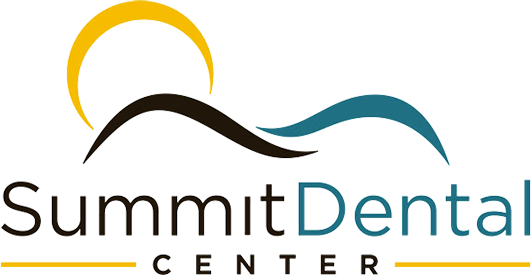TMJ Treatment - Temporomandibular Joint Pain
Are you constantly feeling pain near your ear, jaw muscles or the side of your face?
Is there a clicking noise and restricted jaw movement that accompanies it?
If you answered yes to any of these questions, then you may be experiencing Temporomandibular Disorders (TMD). It is important to note here that TMD and TMJ both refer to two different things. While everyone has a pair of TMJs -short for temporomandibular joint- not everybody suffers from TMD. Therefore it's essential to understand the difference in order to get proper treatment.
Orange Dentist, Dr. Brian Lin Provides Treatment Of TMJ Related Problems
Troubleshooting TMJ symptoms can be tricky, but fortunately, most cases of TMD resolve themselves with the assistance of conservative therapies recommended by Dr. Brian Lin. It is important to try all reversible remedies first before opting for anything irreversible like surgery!
The temporomandibular joints (TMJs) that link your lower jaw and temporal bone on either side are, in actuality, incredibly intricate. They offer a multi-dimensional range of motion with the mandible snugly fitting into the cavity formed by the temporal bone - all cushioned by a disk! The cheeks and temples powerfully animate these motions through large paired muscles. Whether it be the disk, muscles or joint itself, any of these components can become the root cause of TMD. If you experience pain when opening and closing your jaw, we will carry out a full examination to identify where the issue lies so that we may advise on an effective treatment plan.
Causes of TMD
The temporomandibular joint (TMJ) is vulnerable to different orthopedic issues, including inflammation, strained tendons and ligaments, muscle pain, and disk problems. Interestingly enough though we also know that TMD can be genetically-influenced too as well as gender biased with women showing higher occurrences of the condition than men. Age may play a role in developing TMD symptoms too. and psychological stress can also be a factor. In some cases, jaw pain may be related to a more widespread, pain-inducing medical condition such as fibromyalgia (“fibro” – connective tissues; “myo” – muscle; “algia” – pain).
Signs and Symptoms of TMD
Clicking Sounds — Many individuals with TMD experience a clicking, popping or grating noise from the TMJ when opening and closing their mouths. This sound is caused by a shifting of the disk inside the joint - in fact, your friends might even notice it if they're close enough! Interestingly enough, studies suggest that isolated jaw clicking isn't necessarily symptomatic since one-third of people have joints that click without any underlying problems. However, if the clicking is accompanied by pain or limited jaw function — the jaw getting “stuck” in an open or closed position, for example — this would indicate TMD.
Muscle Pain — This can be felt in the cheeks (masseter muscles) and temples (temporalis muscles), where the two big pairs of jaw-closing muscles are located. If you feel soreness and stiffness upon waking up in the morning, it's often related to habits such as clenching and/or grinding the teeth at night. If you have this type of nocturnal habit, we can have a nightguard custom-made for you that should be very helpful in decreasing the force applied to your teeth, which will in turn allow your muscles to relax and relieve pressure on your jaw joints. Other self-care remedies are discussed below (please see Relieving the Pain).
Joint Pain — Pain that's actually coming from one or both jaw joints technically would be described as arthritis (“arth” – joint; “itis” – inflammation) of the TMJ. When we look at radiographs (x-ray pictures) we find that some people have arthritic-looking TMJs but no symptoms of pain or dysfunction; others have significant symptoms of pain and dysfunction but their joints look normal on radiographs.
Relieving the Pain
Upon completing a thorough assessment, Dr. Lin will deliver a customized plan tailored to treating your condition and managing the pain. Here and there, altering what you eat temporarily so that it's softer can help reduce tension on sore muscles and joints. Ice and/or moist heat can help relieve soreness and inflammation. Muscles in spasm can also be helped with gentle stretching exercises. Non-steroidal anti-inflammatory medications and muscle relaxants can also provide relief.
Other Treatment Options
Severe TMD cases may require more complex forms of treatment, which might include orthodontics, dental restorations like bridgework, or minor procedures inside the joint such as cortisone injections or lavage (flushing) of the joint. It's rare for major surgery ever to be necessary in a case of TMD. Again, it's important to try the wide range of conservative, reversible treatments available, and give them enough time to work as they almost always prove effective. The first step is an examination here at our dental office. We don't want you to be in pain, so please come in and see us.
To learn more about the treatment options available, contact Summit Dental Center for a TMJ consultation today!

